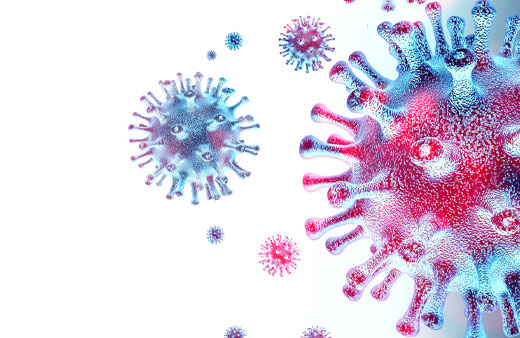A team that set up a mass COVID-19 testing pilot in Liverpool and a team that researched the prevalence of long-term COVID-19 in Scotland have been announced as the joint winners of the 2023 Florence Nightingale Award for Excellence in Healthcare Data Analytics.
The award, now in its fourth year, is jointly awarded by the Royal Statistical Society and the Health Foundation. It recognizes practitioners in applied healthcare data analytics who have gone the extra mile in delivering innovative improvements for the healthcare system.
This year, the award has been jointly awarded to two teams for their projects related to COVID-19:
- The Liverpool COVID-SMART mass testing evaluation and CIPHA analytic legacy is a project led by a team at the University of Liverpool that established the world’s first city-wide, voluntary COVID-19 rapid antigen testing pilot. Analysis found that the pilot was associated with a 25 percent reduction in COVID-19 hospitalizations in Liverpool. Work on the project involved the creation of the UK’s first Civic Data Cooperative for public and practitioner involvement in health data. Data gathered for the project informed the UK and international pandemic policy, revealing insights that helped with community approaches to COVID-19 testing. The project involved engaging with different organizations and the wider public, and there was a commitment to openness, with the publication of the code and resources.
- Analysing electronic health records to identify the prevalence of long-term COVID-19 is a collaboration between the universities of St Andrews, Aberdeen, Edinburgh, Glasgow, and Strathclyde. It involved rigorous statistical analysis of the health records of Scotland’s entire adult population to estimate the prevalence of long-term COVID-19 in the country. The study was the first of its kind to provide an estimate of long COVID across a national population using free text in GP notes.
Understanding how many people have long COVID-19 is important for addressing the scale of the problem. The results of the analysis have been used to inform Public Health Scotland’s provision for long-term COVID-19 patients, as well as the Scottish Parliament’s COVID-19 Recovery Committee recommendations on legislation and policies.
Charles Tallack, Director of Data Analytics at the Health Foundation, said: ‘The effective use of data and analytics is crucial to the recovery of the health and care system. These two winning projects are excellent examples of ambitious collaborations that improved health and care by harnessing data in innovative ways. Each team meaningfully involved and engaged patients and the public in their work and published a wealth of information and resources in easily accessible forms. These impactful pieces of work are brilliant examples of how data analysts are tackling real-world problems and benefiting patients. Congratulations to both teams.’
Jonathan Everett, Head of Policy at the Royal Statistical Society, said: ‘This year’s winners demonstrate the breadth of impact data analytics has within healthcare and the positive outcomes it brings for patients and the wider public. I would like to give my congratulations to both teams.’
The Royal Statistical Society and Health Foundation are grateful to the judging panel (Nessa Becerra, Geraint Day, Karen Facey, and Natalie Creary) for their involvement in this year’s award.








